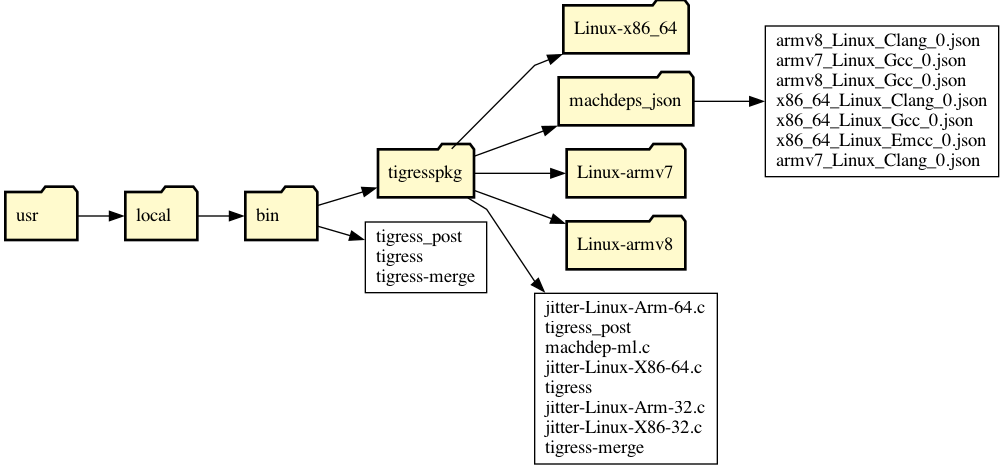Tigress will be installed in /usr/local/bin/tigresspkg and links to the tigress binaries
will be added to /usr/local/bin:

You can run a simple installation check:
> /usr/local/bin/tigresspkgVERSION-NUMBER/check.sh
Version 0-3 installation: Download the relevant .zip-file. Unzip and store the directory
in the location of your choice. Set the environment-variable $TIGRESS_HOME to point to the distribution,
by adding these lines to your shell startup file (.bashrc, .zshrc, .profile, etc, depending on your shell):
export TIGRESS_VERSION=3.3
export TIGRESS_HOME=/Users/alice/tigress-install/bin/tigress/$TIGRESS_VERSION
export PATH=$PATH:$TIGRESS_HOME
Running on Linux
The interface to Tigress changed from Version 3 to 4. In Version 3, the "--Environment=..."
option was mandatory, and to specify the path to a compiler you would use the ''--gcc=..." option:
> tigress --Environment=x86_64:Linux:Gcc:4.6 ...
> tigress --Environment=x86_64:Linux:Gcc:4.6 --gcc=PATH-TO-COMPILER ...
In Version 4, the "--Environment=..." option is optional (we derive the platform from
reasonable assumptions about the current environment), and to specify the path to a compiler you
use the "--Compiler=..." option:
> tigress ...
> tigress --Environment=x86_64:Linux:Gcc:4.6 ...
> tigress --Environment=x86_64:Linux:Gcc:4.6 --Compiler=PATH-TO-COMPILER ...